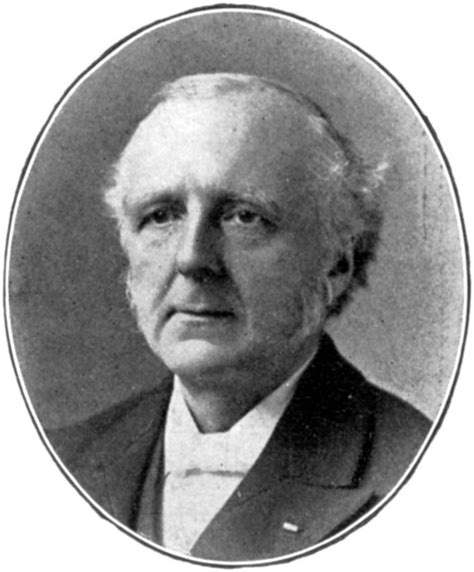A Quote by F.B. Meyer
Consecration is not the act of our feelings but of our WILL.
Quote Topics
Related Quotes
We tend to think of consecration only as yielding up, when divinely directed, our material possessions. But ultimate consecration is the yielding up of oneself to God. Heart, soul, and mind were the encompassing words of Christ in describing the first commandment, which is constantly, not periodically, operative (see Matt. 22:37). If kept, then our performances will, in turn, be fully consecrated for the lasting welfare of our souls (see 2 Ne. 32:9).
Thinking cannot be clear until it has had expression-we must write, or speak, or act our thoughts, or they will remain in half torpid form. Our feelings must have expression, or they will be as clouds, which, till they descend in rain, will never bring up fruit or flowers. So it is with all the inward feelings; expression gives them development-thought is the blossom; language is the opening bud; action the fruit behind it.
In the new alchemy, we have a similar kind of way of thinking. Our internal space includes our intuitions, our thoughts, our senses and our feelings, and from these we construct or build a picture of the outside world. From intuition and thought, we construct time. We also construct space from thought and our sensations. From our senses and our feelings, we experience energy, and from our intuitions and our feelings, we experience motion.
In the performance of our responsibilities, I have learned that when we heed a silent prompting and act upon it without delay, our Heavenly Father will guide our footsteps and bless our lives and the lives of others. I know of no experience more sweet or feelings more precious than to heed a prompting, only to discover that the Lord has answered another's prayer through you.
The truth about our childhood is stored up in our body, and although we can repress it, we can never alter it. Our intellect can be deceived, our feelings manipulated, and conceptions confused, and our body tricked with medication. But someday our body will present its bill, for it is as incorruptible as a child, who, still whole in spirit, will accept no compromises or excuses, and it will not stop tormenting us until we stop evading the truth.
Often the answer to our prayer does not come while we’re on our knees but while we’re on our feet serving the Lord and serving those around us. Selfless acts of service and consecration refine our spirits remove the scales from our spiritual eyes and open the windows of heaven. By becoming the answer to someone’s prayer we often find the answer to our own.
Conversations are efforts toward good relations. They are an elementary form of reciprocity. They are the exercise of our love for each other. They are the enemies of our loneliness, our doubt, our anxiety, our tendencies to abdicate. To continue to be in good conversation over our enormous and terrifying problems is to be calling out to each other in the night. If we attend with imagination and devotion to our conversations, we will find what we need; and someone among us will act—it does not matter whom—and we will survive.


































